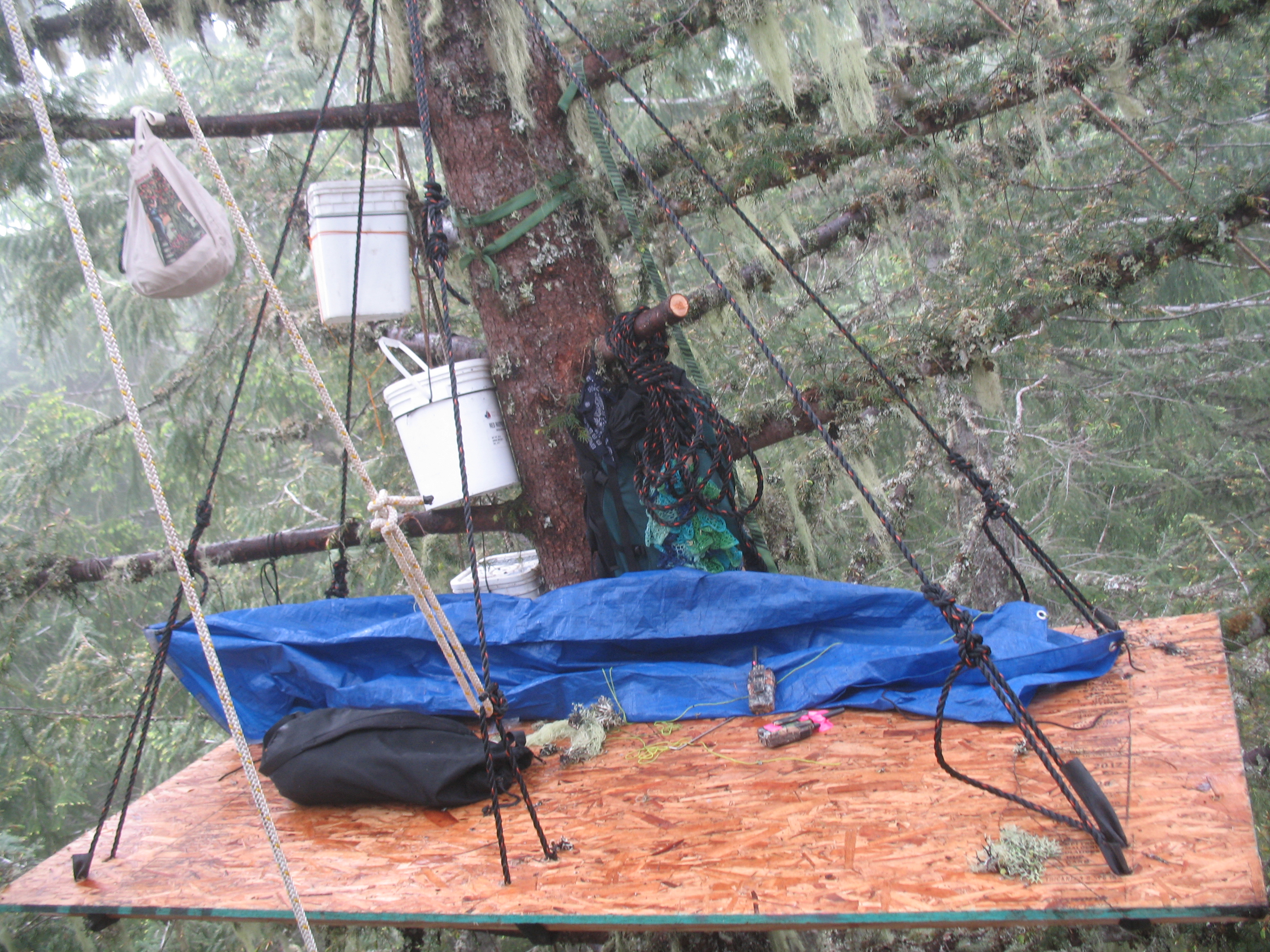14th August 2013: The Bureau of Land Management wants to close to the public more than 2,000 acres of forestland east of Myrtle Creek to keep out environmental activists trying to stop logging.
Cascadia Forest Defenders tree-sitters have perched themselves to block the White Castle timber sale, one of three pilot projects planned by the BLM to log and simultaneously create wildlife habitat.
The group’s spokesman, Jason Gonzales, said anywhere from five to 30 protesters at any one time are occupying what the group calls a “tree village.”
“There is nowhere they could log right now. There are tree-sits covering an entire section to be logged,” he said.
To prevent protesters from interfering with loggers or from being harmed by falling trees, the BLM has indicated it intends to block off 2,167 acres, including 15 miles of road, for up to two years while the trees are cut. The agency will take public comments until Aug. 30.
The move would prevent people who recreate in the Myrtle Creek watershed from entering the area.
A Roseburg BLM field manager, Steven Lydick, said the BLM’s biggest concern is safety.
“We would be working with the Douglas County Sheriff’s Office to remove people from the area,” Lydick said. “But it is our hope they would leave voluntarily.”
The tree-sitters took up their positions more than a month ago. So far, there have been no arrests or forcible removals, although Cascadia Forest Defenders states protesters have been visited by law enforcement.
The Scott Timber Co., a subsidiary of Roseburg Forest Products, already has the contract to log 6.4 million board feet, but has put the harvest on hold.
“We are unable to operate on it because of the tree-sitters and serious fire risks,” said Scott Folk, the vice president of resources with Roseburg Forest Products. “We would be logging right now, assuming conditions were better.”
The agency is using the 187-acre harvest to test principles developed by forestry professors Jerry Franklin of the University of Washington and Norm Johnson of Oregon State University. The Obama administration has backed the experiment as a way to increase timber harvests while heeding conservation values.
Proponents of the experimental timber harvests say they will mimic natural forest fires and create clearings for flowers and shrubs to grow unshaded by trees. Native plants thriving in the sunlight will feed butterflies, birds and small mammals.
Conservation groups, however, have criticized the sales as a ruse to clear-cut forests and have filed administrative challenges.
“People are concerned the trees in the White Castle timber sale will start to fall,” said Francis Eatherington, conservation director for Cascadia Wildlands, a different group than the one occupying trees.
“These are young people putting their lives in danger to save these forests. They are very brave,” she said.
Gonzales accused the BLM of obscuring plans to clear-cut with the term “regeneration harvest.”
“We think it’s very sneaky of (BLM) to use the term ‘regeneration harvest’ without people knowing what it is,” he said.
Lydick said it’s wrong to equate the harvests with clear-cutting.
“The pilot project is really intended to make a habitat mosaic. Some areas will be cut and others will remain completely intact,” he said.
The Umpqua Lands Trail Riders Association has proposed an off-road vehicle trail through the area. The association’s trail manager, Wayne Brady, said he would not be particularly concerned if the closure were only temporary.
He noted that his group and conservation groups have not been allies. “They were dead-set against our proposal too,” he said.
“If they are out there interfering, then the closure is not too long,” Brady said. “If the closure becomes permanent, then that’s a slap in our face.”
A two-year closure would eventually affect hunting in the area, said Cindy Rooney, president of the Oregon Hunters Association’s Umpqua Valley Chapter.
“It’s my personal feeling that people should have access to public lands,” she said.


